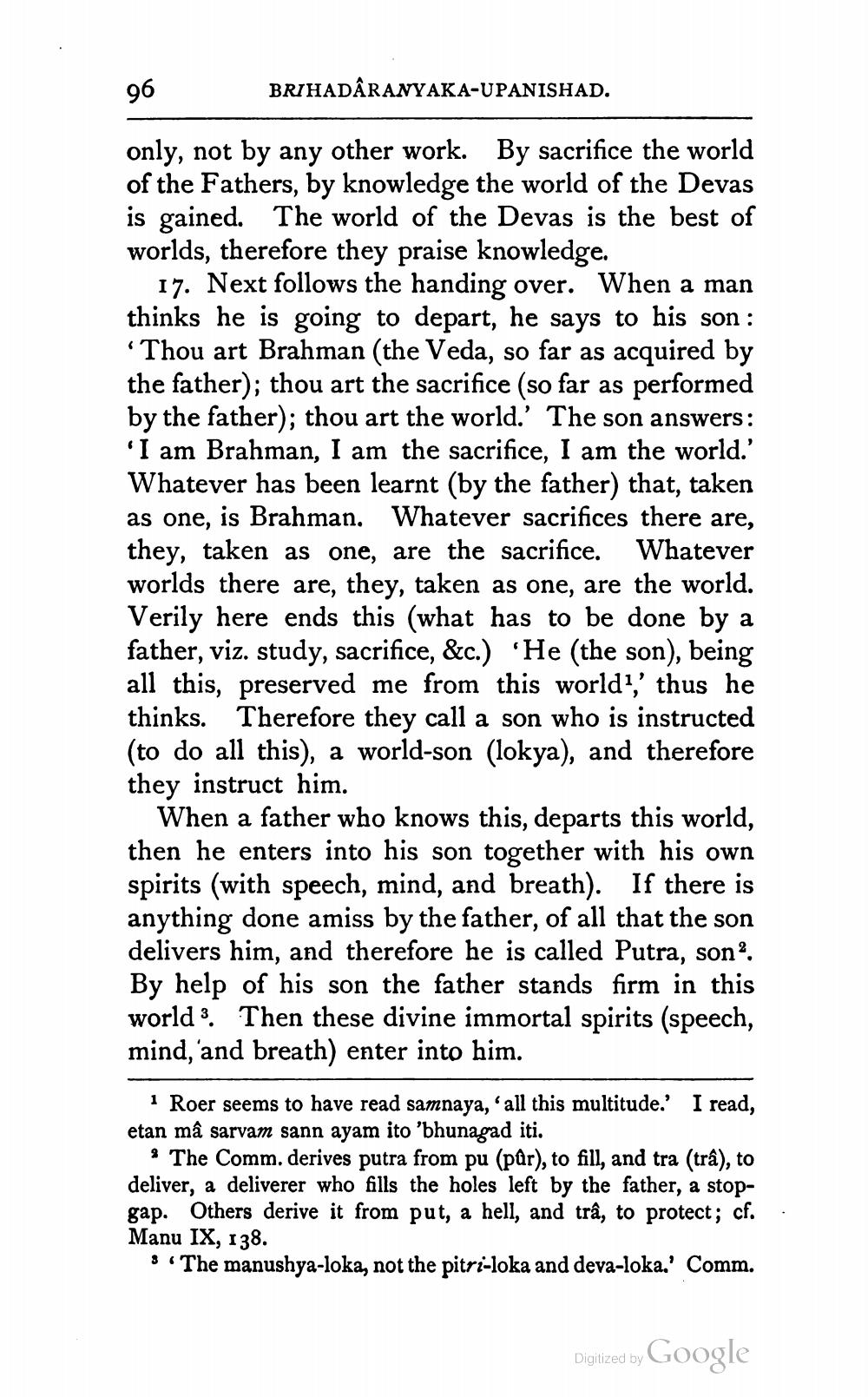________________
96
BRIHADARANYAKA-UPANISHAD.
only, not by any other work. By sacrifice the world of the Fathers, by knowledge the world of the Devas is gained. The world of the Devas is the best of worlds, therefore they praise knowledge.
17. Next follows the handing over. When a man thinks he is going to depart, he says to his son: 'Thou art Brahman (the Veda, so far as acquired by the father); thou art the sacrifice (so far as performed by the father); thou art the world. The son answers: 'I am Brahman, I am the sacrifice, I am the world.' Whatever has been learnt (by the father) that, taken as one, is Brahman. Whatever sacrifices there are, they, taken as one, are the sacrifice. Whatever worlds there are, they, taken as one, are the world. Verily here ends this (what has to be done by a father, viz. study, sacrifice, &c.) 'He (the son), being all this, preserved me from this world,' thus he thinks. Therefore they call a son who is instructed (to do all this), a world-son (lokya), and therefore they instruct him.
When a father who knows this, departs this world, then he enters into his son together with his own spirits (with speech, mind, and breath). If there is anything done amiss by the father, of all that the son delivers him, and therefore he is called Putra, son . By help of his son the father stands firm in this world 3. Then these divine immortal spirits (speech, mind, and breath) enter into him.
1 Roer seems to have read samnaya, all this multitude.' I read, etan mâ sarvam sann ayam ito 'bhunagad iti.
* The Comm. derives putra from pu (pûr), to fill, and tra (trâ), to deliver, a deliverer who fills the holes left by the father, a stopgap. Others derive it from put, a hell, and trâ, to protect; cf. Manu IX, 138.
8.The manushya-loka, not the pitri-loka and deva-loka.' Comm.
Digitized by Google




